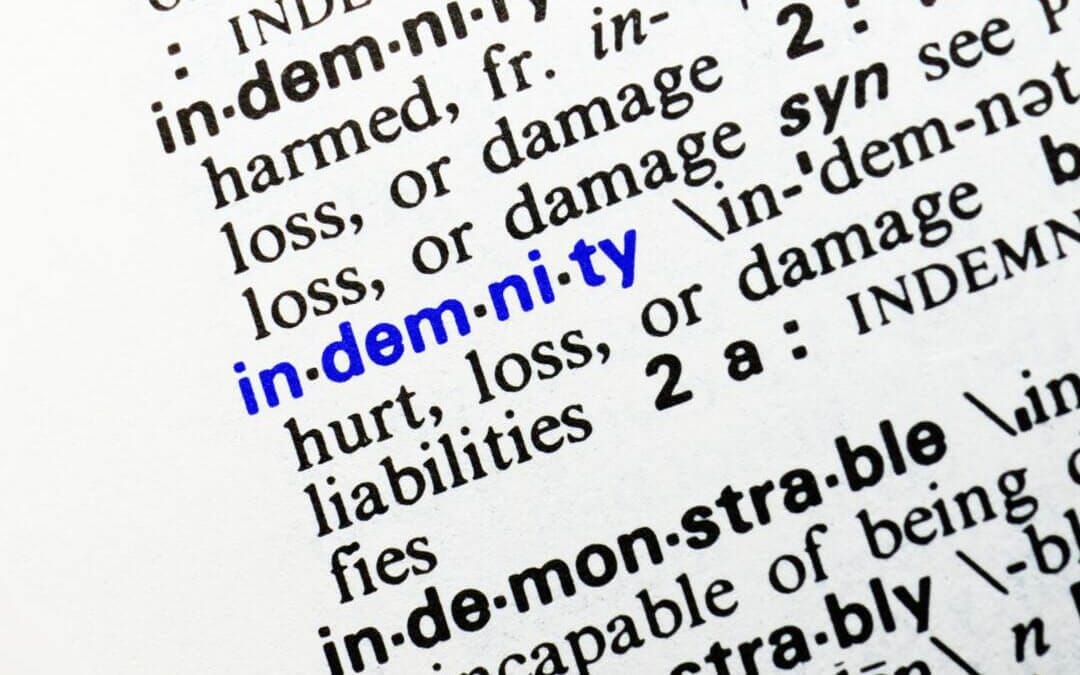When reviewing a contract, understanding what are indemnities in a contract is crucial for protecting your interests. Indemnity clauses outline who is responsible for covering losses or damages, often favouring one party over the other. By carefully examining these clauses, especially regarding limitations on liability, you can ensure fair protection and avoid unexpected financial burdens.
Understanding Indemnity in a Contract
An indemnity in a contract is the contractual agreement where one party promises to compensate another party for any loss or damage they incur from the other party who is in breach of that contract. It is essentially the clause that assigns blame to one party and describes the level of compensation or damages that should be awarded for any actions which they do wrong.
An indemnity can often be in full and without any limitation. It may include the ability to hold the other party harmless entirely for anything that they do within the contract, meaning, they would not be liable for any costs or losses.
This would not be something we would advise that you agree to. To ensure this isn’t the case, you need to look at whether the protections work both ways. Often, they are written to provide protection to only one party to the agreement (usually the party who has issued the contract) whilst assigning blame and liability in full to the other party despite them equally having the ability to cause damage and losses.
Liability Clauses and How You Can Protect Yourself
Now that you understand what indemnities are in a contract, the first focus of the liability clause that you need to be aware of is the type of losses you are indemnifying or promising compensation for. We categorise these into direct and indirect or consequential losses.
Direct losses are usually fine to be agreed to. This is where you have to compensate only should you breach the agreement for any direct losses that arise from that breach. For example, it may mean that you are at their premises and you have broken an item and that item needs to be repaired or replaced. This is a direct loss that you should be prepared to pay to reinstate.
Indirect and consequential losses are losses that occur as a result of your breach. Using the example above, if that item meant it affected the other party’s business ability to trade and they wish to claim loss of profit or contract or other further sales which may have been made. Anything where they have suffered losses as a consequence of your actions or lack of actions, they may want to claim against you for.
We would advise that you always limit to direct losses only and exclude any mentions of indirect or consequential losses. Depending on the contract and the wording, loss of profit could be deemed to be a direct loss.
Secondly, you want to ensure that you are not indemnifying the other party beyond your reasonable means. This is where we try to limit any losses which can be attributed to you at a rate which is affordable for you. Where possible, try to limit these losses at the lowest figure possible. Ideally this could be the cost of the contract in its entirety, which, in essence, would mean you would only be liable for a refund of the contract value. Common practice would be for it to be agreed that you shall indemnify the other party to the maximum cap of your insurance levels. Check your insurance levels and whether what you are agreeing match these and try and limit your maximum liability where possible.
The reason why we use your insurance limits is that these are your indemnified limits. Your insurance company protects you against things where you do wrong or have caused losses and the indemnified amount is the level which they can claim against so that you are not out of pocket paying these directly. Often, if we include any amounts above and beyond these insurance levels, claims can really add up and can total tens of thousands of pounds, which could mean the insolvency or bankruptcy of your business.
This is why it is important to ensure your liability and indemnity clauses are understood when you enter into a contract. It is also crucial that you understand exactly what you could be liable for should a problem arise. Being clear on what the other party would be liable for is a big concern and ensuring you can claim should the other party be in breach is a huge protection for your business.
If you want us to help draft a new contract or review an existing one, get in touch with us at 01604 217365 or info@bebconsultancy.co.uk.

